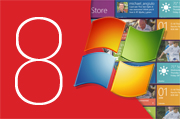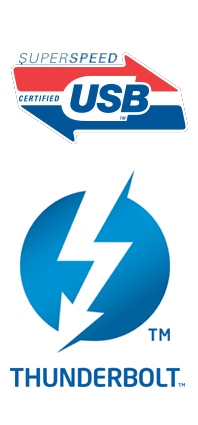Microsoft Announce that Windows 8 Will Integrate USB 3.0 and Complicate the Thunderbolt Battle
The Microsoft BUILD conference is in process this week and Microsoft have already released the first set of information on Windows 8. Surprisingly for Microsoft the reviews have so far been quite positive, although it is not completely finished so we will have to wait until it’s release expected around mid to late 2012. Amongst many drastic changes that Microsoft have planned for the new operating system is the decision to support USB 3.0 from the launch of Windows 8.
Microsoft have normally been quite sluggish in adopting new technologies but they have announced that Windows 8 will carry a built in software stack to natively support USB 3.0. This is much more meaningful when you understand that in the early days of USB each new drive would come with its own driver that would have to be installed onto every computer that it was used with until Microsoft developed the native driver which put an end to the hassle.
This announcement complicates the battle between thunderbolt and USB 3.0 but does add a little more ‘umph’ behind USB 3.0. However, at the Intel Developer Forum on Wednesday Asus and Acer, two big names in PC hardware, promised systems supporting Thunderbolt as soon as early 2012. That again equals the score in the USB 3.0 and Thunderbolt battle.
Despite the movement of hardware companies to support either USB 3.0 or Thunderbolt the state of affairs is still very much a chicken and egg situation. No matter the choice of computer connectivity that is chosen by computer manufacturers if external devices and accessories are not made for that connectivity type then the port on the computer is made redundant. However, external device and accessory manufacturers are not going to make products with a specific computer connection if the computers do not support it.
It’s for that reason that Microsoft’s announcement to support USB 3.0 and Acer and Asus stating that they will support Thunderbolt is very important. Apple’s decision to fit all new computers with Thunderbolt and no USB 3.0 is a very brave but possibly rewarding move. It also has to be wondered what connectivity will come as standard with the new iPhone and iPad? Will Apple try to force Thunderbolt upon users by making the new devices only Thunderbolt compatible, will they make it with dual compatibility or will they not risk their telephone and tablet market dominance over a connectivity battle?
Whatever the outcome, we are keeping a close eye on it to understand the connectivity of the branded memory sticks of the future will be.


